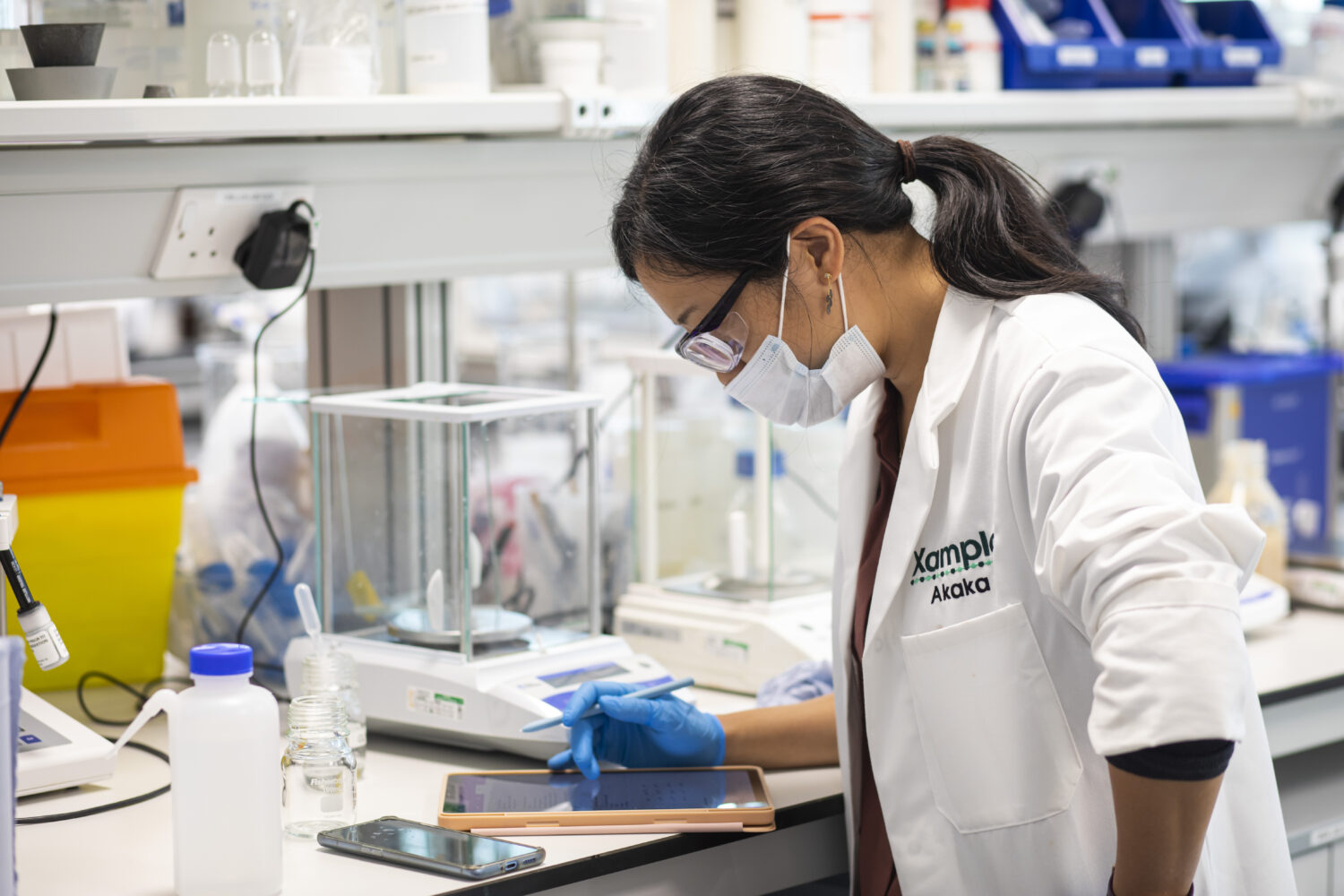News
Scientist in the Spotlight – Ayaka Kamada, Materials Scientist at Xampla

Xampla is committed to making the world a better place by bringing together the world’s best scientific and industry knowledge to create Morro™ materials. In this Scientist in the Spotlight we chat to Ayaka Kamada, Research Scientist at Xampla, about her work under the Marie Skłodowska-Curie Actions (MSCA) fellowship program and what this brought to the Xampla team and her work with Morro materials.
Can you tell us about your background as a Research Scientist:
I grew up in Japan, where I completed my undergraduate degree in Engineering. I then started my Masters in Bioengineering, which involved a year in Sweden as an exchange student. During my time in Sweden, I began working on protein-based materials, which I found fascinating. After my Masters I decided to move to Cambridge for my PhD to do research on protein-based materials.
Can you tell us a bit about the Marie Skłodowska-Curie Actions (MSCA):
The Marie Skłodowska-Curie Actions (MSCA) is a set of prestigious research fellowship programs funded by the European Union. It is designed to support the career development of researchers by providing opportunities for international and interdisciplinary mobility. It aims to enhance the skills and competencies of postdoctoral researchers and encourage them to engage in long-term research projects. The fellowship encourages researchers to move between academia, industry, and other sectors, fostering collaboration and knowledge exchange.

How did the MSCA fit into your work at Xampla?:
I wanted to do translational research that brought academic innovation to industry. My background is material science; a field driven by society’s needs – I therefore felt it was important for my career to work in industry to gain insight into the innovations needed by society, and the challenges associated with translating these advancements into tangible realities. I wanted to work in an environment where I had a connection to both academia and industry, and the fellowship coupled with my role at Xampla offered the perfect opportunity to achieve this.
What was the application process like for the fellowship?:
The selection process was fairly competitive, with a selection rate of about 10% each year. The MSCA is a well-known grant in Europe, especially in academia. The application process was made easier due to my support from Xampla.

What did you most enjoy about The MSCA?:
Research! The MSCA fellowship allowed me to work on the proposed research for 2 years as part of the Xampla team. The project has been fun, although quite challenging at times. I gained a lot of new skills and knowledge in different fields of science. The fellowship pushed me to go beyond my comfort zone, reading a lot of papers in subjects that were completely different to my own.
Most importantly working with the Xampla team gave me the opportunity to learn about the latest developments in industry and see how my newly acquired knowledge will propel research in this field. It has been very rewarding!
The international aspect of the fellowship was also appealing, I am originally from Japan and I was excited to be in a different country like the U.K.
Can you tell us more about your research?:
My project, called ScalePlantProt, was about making the processing of plant proteins more scalable. Xampla’s Morro materials are all plant based, with plant proteins being at the heart of our technology. The aim of my research was to ensure our production processes for Morro Soluble and Edible Films and Morro Micro and Nutri applications are as energy efficient as possible when manufactured in large volumes.
Thanks Ayaka!
Look out for the next Scientist in Spotlight to learn more about Xampla’s team and their work with Morro materials.


